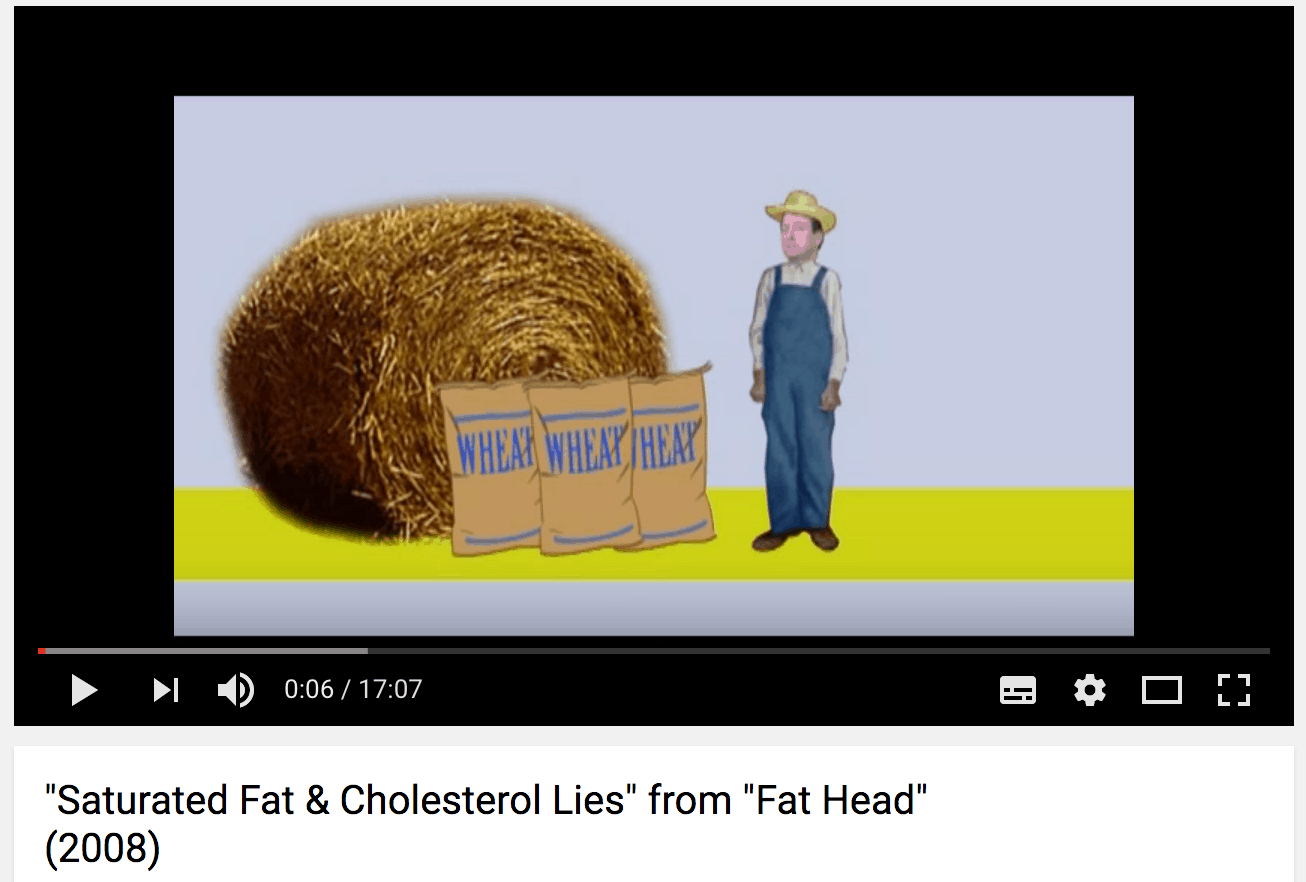By Coach Jen Li Sheng, Senior Coach & Centre Manager at Genesis Gym HQ, Eunos
Chinese New Year is always a highlight on the calendar. As we gather with family and friends during this festive celebration, I’m sure there are also many people who are planning ways to try not to add a few more inches to the waistline with all that festive feasting.
Associated with Chinese New Year, are its traditional myths and superstitions. Wearing red for good luck. Avoiding black as a taboo colour. No house-cleaning during the New Year celebration, for fear of sweeping away the year’s wealth and luck. Avoidance of holding sharp objects like knives, and breaking items, to avoid mishaps in the year.
Well, I’m here to share 5 common practices that many people try to adhere to, but simply do not work. They are, as this blog post title suggests, mere myths with little or no scientific background to them.
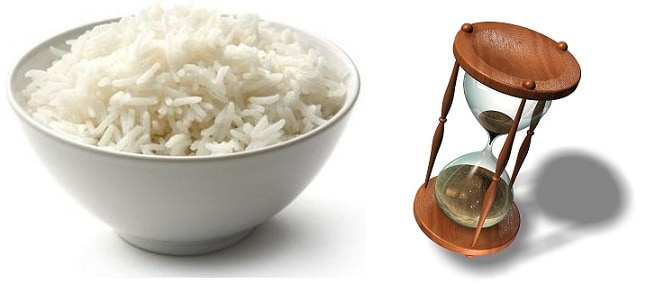
Avoiding carbs for dinner - myth busted!
Myth #1: "I'm gonna avoid carbs for dinner so I don't put on weight!”
I definitely know of a number of people who strongly believe in and adhere to this even during non-festive periods.
This idea probably stems from logical deduction. Dinner is close to sleeping time. You don't burn much energy while sleeping. Take out the food that gives you the most energy. Ta-da! Fat loss achieved.
Granted, there are some merits to this method. In terms of total daily intake of food, eating less can help you achieve a caloric deficit (which refers to expending more energy than you consume), resulting in weight loss.
Removing carbs from your dinner does not magically lead to weight loss. Ultimately, it is about controlling your total food intake throughout the day. Even if you avoid starch at night, eating a lot during the day would still result in weight gain.
And what usually happens when you don't feel full from omitting the food group that fills you up?
You start consuming more of the other foods that are deemed "ok". More of the other dishes, which could possibly be drenched in oil and thick sauces. These in turn, also contribute to the overall caloric intake too.
What should you do? Stop vilifying carb intake at dinner. Or at night. Or even just before you sleep.
Aside from giving you energy, carbohydrate consumption can also produce serotonin, the feel-good hormone that relaxes you. You can read more of that in the last blog post on hormones.
Carbohydrates also spike insulin. How is this beneficial?
Ever had rice or pasta during lunch and felt sleepy in the office afterwards? Imagine if you experienced this at night to help you sleep better.
Having carbohydrates at night is something we advise some of our Genesis Gym personal training clients do, especially if they are highly stressed individuals like working mothers or high travel-frequency professionals.
Consuming carbs in the context of a controlled diet – suited according to your fitness goals – will not slow down your weight loss. In fact, achieving better quality sleep through strategic carb intake can help you get better results!
Take stock of how much food you are consuming in a day, be it through counting your calories or by taking note of the portions of food. If you are trying to lose fat, make sure you are in a caloric deficit, consuming less energy in terms of food than the amount you expend. Carbohydrate consumption can then be centred around before and after training to promote a good workout, and optimal recovery thereafter. You can also have some before you sleep to get better quality sleep.
A better way to plan your carbohydrate intake this reunion dinner is to take away the carbs from the other times in the day and save it for the evening.
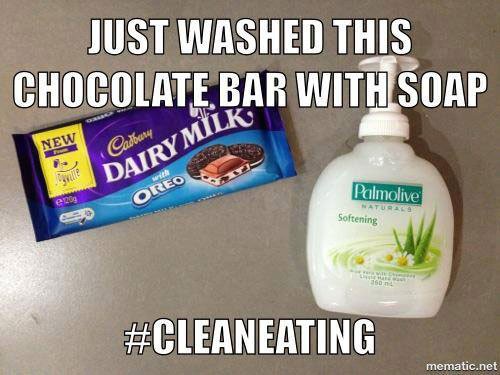
What IS clean eating anyway? (Image Credit: Chris Ruden)
Myth #2: I'm gonna "eat clean" to lose weight
Since the inception of this snazzy diet fad, it’s actually sad to say that there is no clear definition of "eating clean". Different people will give you different interpretations of this, depending on whom you ask.
To a more traditional bodybuilder, "clean" foods might mean steamed or boiled broccoli, chicken breast, tilapia and other low-fat foods. No salt or sodium is allowed, because, apparently, it can cause "water retention".
To a low-carb or ketogenic enthusiast, it could mean eating only meats, dietary fats, and a certain amount of green leafy vegetables. Carb sources like rice, potatoes, and even fruits might be on the banned list, because apparently it can cause an undesirable rise in insulin and cause fat gain.
To the paleo eater, "clean eating" could be exclusively consuming things that come from Mother Nature only, or foods that our ancestors supposedly ate. Anything that went through processing is shunned, because such foods are no longer in the form we were "meant to" have them in.
The general principle remains similar. It is the avoidance of certain "undesirable", "detrimental", or "dirty" foods, opting instead for a list of recommended food choices.
There are four main fallacies, among others, to address with such clean eating approaches.
First, consumption of dietary fat does not make you fat inherently, unless it is contributing towards a caloric surplus. A certain level of dietary fat (20-40%) is also needed for healthy hormonal levels.
Second, unless you are trying to achieve weight for a specific competition, or stepping up on stage for a physique-related competition within a few days, there is no need to be concerned about sodium consumption. In fact, some sodium consumption prior to training can help with hydration and performance.
Third, low carb and ketogenic diets, when done strategically and periodically, have their uses for certain individuals in terms of health, and adherence to a diet plan. It is important to understand that in terms of weight loss, there is no metabolic advantage between a low carb diet and a higher carb diet when certain factors like calories and protein are equated (Source: The American Journal of Clinical Nutrition, "Energy expenditure and body composition changes after an isocaloric ketogenic diet")
Unless it helps you stick to your diet plan, or you have a health condition, have some carbohydrates. As powerful as the effects of insulin are, the amount of food consumed still matters. People have been known to drop weight eating nothing but Twinkies, a high-carb snack, because they took into account how much calories they ingested. We are not saying this is recommended or that this is healthy. But do not demonise carbs, as they are a useful tool to have.
Lastly, just because something is processed does not necessarily mean it is bad for you. Coffee, tea, cold pressed oils, butter and cheese are all processed in one form or another, but they are healthy foods that can be included in a sensible and effective diet. Protein powders are considered processed foods too, but many of our personal training clients utilize good quality powders to help them reach their protein requirements because it requires minimal preparation. Consuming protein powders have helped many of our Genesis Gym Singapore clients attain their body transformations.
Of course, there are some processed foods that we should avoid. Foods that contain hydrogenated fats would be a no-go, such as packaged donuts, muffins, crackers and cookies. Hydrogen atoms are inserted into the molecular structure of unsaturated fats to make them more stable. These hydrogenated fats are then added to certain foods to increase shelf life and flavour. However, they also increase the risk of heart disease, and inflammation in the body - certainly not something you want.
Again, it ties in with the first point: are you consuming a suitable amount of food to help you lose weight? In the process of "cleaning up" their diet, people eliminate an entire food group, like fats or carbs, and inadvertently reduce their caloric intake, which is what really caused the weight loss. Sure, it can possibly work, but how sustainable is it? And why make life harder by depriving yourself of certain conveniences, especially if it does not harm, but help your fitness goal?
After determining how much they should be eating, our guideline for our clients is to keep 80% of their food intake minimally processed, for the sake of ingesting the inherent good stuff: vitamins, minerals, and fibre. Carbohydrates will then be centred around training time, before or after, and the total amount is determined by activity levels. And we certainly do not want to go low fat. That is just asking for trouble. Once these essentials are taken care of, it is fine to fill up the rest of the diet with some processed foods.
So go ahead. Pop that pineapple tart. As long as you have already done your due diligence, it is ok.
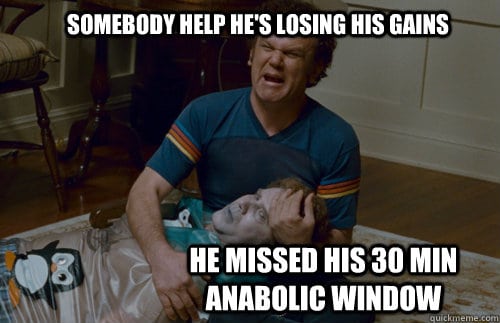
(Image Credit: MuscularStrength.com)
Myth #3: I gotta have my protein shake in the anabolic window
The theory of the anabolic window stems from the idea that after a hard session of tearing down your muscles, you have around 30-60 minutes where your muscles are very sensitive to nutrients. If you ingest food, or better yet, a protein shake within this period, you maximise your muscle-building capabilities. Miss it, and you are not getting the best out of your training and nutrition. This notion has floating around gym floors and locker rooms for the longest of times, and adhered to by the most ardent of gym rats.
Now it is true that you do have an anabolic window after lifting weights - your body becomes more insulin-sensitive and upcycle more nutrients into muscle cells instead of fat cells.
However, this window of opportunity lasts a little longer than an hour - up to 16 hours in fact. (Source: National Center for Biotechnology Information, “Exercise and insulin sensitivity: a review.”)
Moreover, if you have taken care of your pre-workout nutrition, by having a meal of protein and carbohydrates one to two hours before you train, or having a protein shake with some simple carbs much closer to training, your body will more than likely have enough nutrients to start the recovery process after the training session has ended. It could still be digesting the food you ate before the session! So there is no real need to slam down a protein shake the moment the weights are racked.
Two situations would warrant immediately refuelling post workout though.
One would be when you are training two sessions in one day. After depleting your body of glycogen - the stored supply of fuel in the muscles - your body needs to replenish them quickly before the next session, in order to perform at top form in a few hours’ time. This would justify having post-workout nutrition soon after you are done. Quick digesting carbs like glucose or dextrose, starches like white rice, or certain high sugar fruits like grapes, pineapple or mangoes would be great. These can paired with lean cuts of meat, like chicken breast, white fish, or a protein shake.
The second situation for immediate refuelling would be when you are training fasted. Some people prefer to do their training the first thing in the morning on an empty stomach, after a night's sleep. In this case, the body is running close to empty by the time the training is done. It would then be a good idea to have some nutrition soon to stem the catabolic, or muscle wasting, effects of going without food for a prolonged period of time.
It certainly feels good to have something immediately post-workout to cap off a session, be it food or a protein shake. But unless you have not eaten anything way before your training session, don't sweat it if you wait until you get home. Your anabolic window does not slam shut on you just because you ate an hour later.
So train hard this Chinese New Year's Eve, and save the calories for a huge reunion dinner at night. You'll still grow and recover. Trust me.

(Image Credit: Fooducate.com)
Myth #4: Too much protein is bad for you
This myth never seems to go away. Every now and then, the media will hype some hysteria regarding the dangers of protein consumption.
But that is all there is to it. Hype.
High protein consumption is safe. This 2016 study found that "protein intake over 4 times the recommended dietary allowance has shown no harmful effect" (Source: Journal of Nutrition and Metabolism, “A High Protein Diet Has No Harmful Effects”)
Unless you have a preexisting health condition, like an ailing kidney, having a high protein diet is fine. In fact, it is probably beneficial for you. You recover faster, get stronger, put on more muscle, maintain more muscle when losing weight, feel fuller, stabilize blood sugar levels and improve bone health.
Pretty cool, eh?
That said, there is no need to become a carnivore from this point on. But do make sure that you have at least one serving of protein every meal. Animal products like chicken, fish, beef and the like, are good. Make sure the serving is around one palm size, and about the same thickness as your palm. Eggs are an excellent choice as well. And yes, eat the yolks (more on that later). If it is too inconvenient to prepare protein sources in advance, or if the dining venue of choice does not have or serve protein, bring along some protein powder. They are easy to prepare and makes protein consumption convenient.
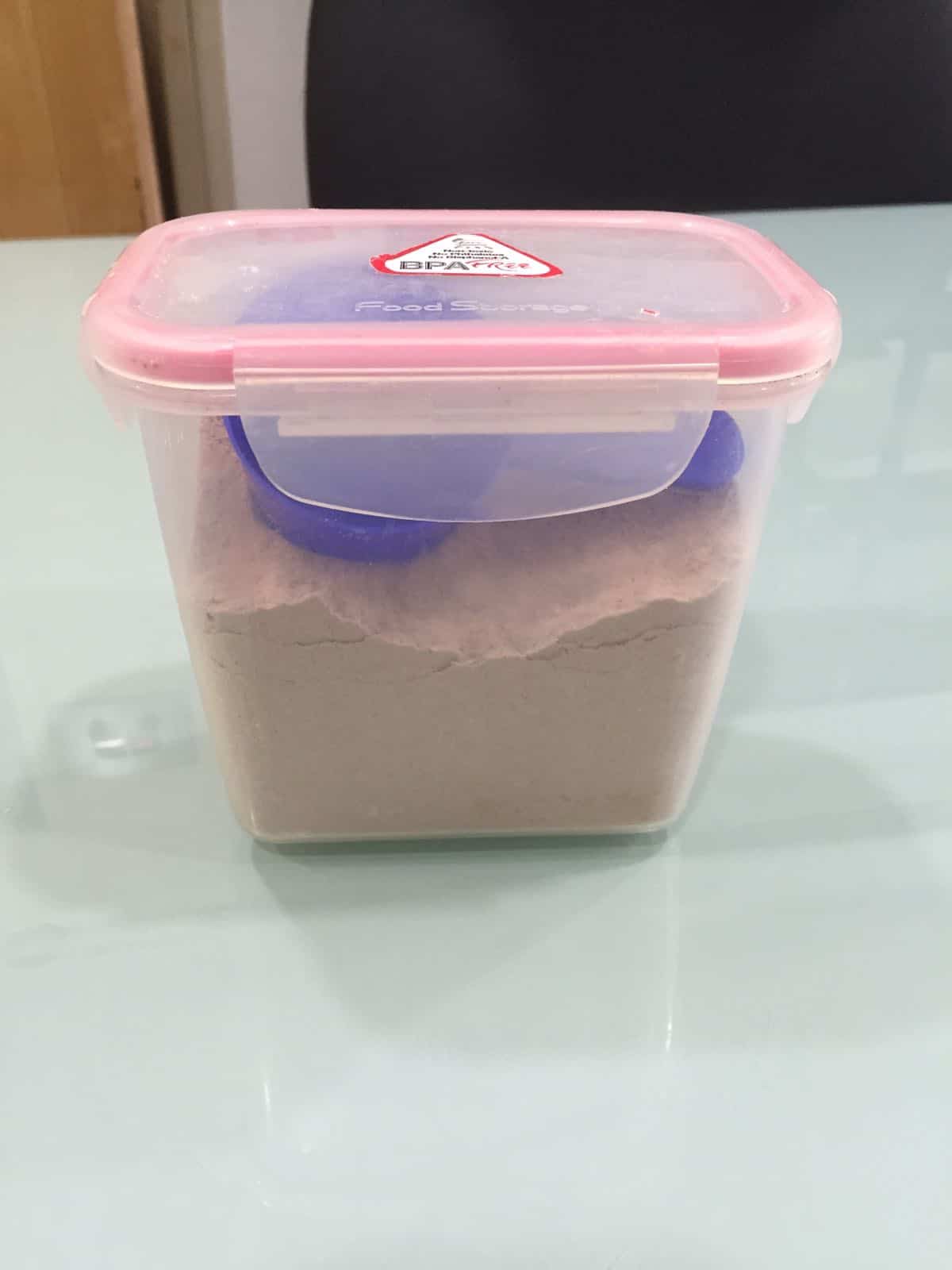
I always bring along a small container of protein powder with me like this, wherever I go, just in case.
And make sure you are getting enough fruits and vegetables in your overall diet as well. You will need some fibre to aid with digestion. Not only is this good for your health, it will keep you from spending too much time on the toilet.
Go ahead and add more meat in your steamboat then!
Myth #5: Too much fat is bad for your health!
No myth busting article could be complete without addressing the grand daddy myth, or should we say lie, of them all.
For the longest of times, we were told that dietary fat, especially saturated fat, was bad for us.
It all came from Dr Ancel Keys, and his "groundbreaking" Seven Countries Study. It began in 1958, tracking the lifestyle and health markers of middle-aged men. The study spanned 40 years, tracking its subjects over 7 counties every 5 years.
Dr Keys’ "findings" were that that cardiovascular disease and stroke were directly related to serum cholesterol levels, which were supposedly affected by saturated fat consumption. This became popularly known as the lipid hypothesis. It was clear: the higher the cholesterol levels, the more heart attacks and strokes there were. The whole world became so convinced by this theory, everyone started dropping fat from their diet, en masse. Saturated fat in particular, the type found in animal sources like skin, fatty cuts of meat and egg yolks, was exceptionally vilified.
In place of all this fat, people were advised to consume more refined carbohydrates and more refined vegetable oils (also known as trans fats), which were deemed safer.
Guess what happened to the incidences of heart disease? Hint: it definitely did not decrease.
So, to combat the new and increasing trend of people keeling over from heart diseases, scientists came up with something in line with the lipid hypothesis. Statins. These magical little pills lowered cholesterol when ingested, and were prescribed as the panacea for cardiovascular disease, on top of a low-fat diet, of course.
Yet, we still haven’t managed to eradicate heart disease from this planet.
AND, did you know…
Dr Ancel Keys had access of data to 22 countries, where the men were tracked over the 40-year period. He only used 7.
Why?
Because some of the countries showed that men with high cholesterol did not have increased rates of heart attacks.
Some of countries also showed that men with low cholesterol also suffered from heart attacks.
In fact, across the 22 countries studied, there was no clear relationship between cholesterol and cardiovascular disease.
That didn't stop Keys from calling it a day though, and moving on to explore what could really be the problem.
Instead, he cherry-picked the seven countries, which showed the pattern he wanted, and published them as fact. And conveniently ignored the data of all the other countries.
This is what is known in the scientific world as confirmation bias: where you manipulate the data to prove something you have already decided beforehand you want to prove.
Not exactly good science, isn't it?
Click on the video above for a more entertaining explanation.
So no, dietary fat is not going to kill you. Now, pass the shabu shabu.
Conclusion:
And there you go. 5 nutritional myths busted.
I hope you gained as much knowledge from this article as I enjoyed researching and writing it. If you did, please share this with your friends and loved ones. Spread the love, and truth, this festive season. This would encourage us at the Genesis Gym Singapore team to continue to come up with more of such content.
At Genesis Gym, we are about empowering our clients to taking charge of their lives through fitness, nutrition and overall lifestyle. Our team constantly researches and questions many so-called scientific studies that have been put out there. This constant strive for excellence has helped more than 10,000 clients achieve not only their fitness goals but overall health and greater knowledge and discernment. These intangible gains are permanent and priceless. Contact us today and see what we can do with you, for you.


